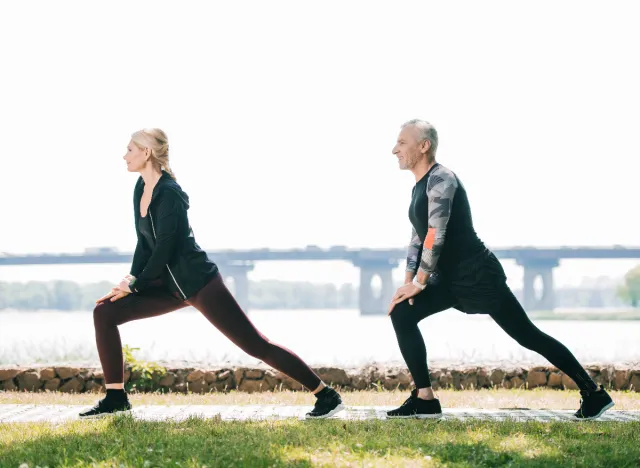Less Than 10 Minutes of Daily Exercise Can Extend Your Life, New Study Finds

Let's be honest: Life can get busy. From work commitments to social plans, it's sometimes incredibly challenging to carve out time to work out and release those "feel-good" endorphins. But exercising nonetheless is important to make time for on a regular basis. And the good news is, your workout time really doesn't have to be a long and drawn-out process. As a matter of fact, a new study published in The Lancet Public Health reveals that less than 10 minutes of exercise can extend your life. So if you can squeeze 10 minutes out of your day for yourself, it's time to learn some very valuable wellness information to help you live longer. Keep reading to learn more, and when you're finished, be sure to check out This Is the New 'Magic Number' of Days You Need to Exercise To See Results, Study Says.
Cardiovascular disease is the leading cause of mortality across the globe.

The number one cause of mortality in the world is cardiovascular disease, the research notes. Although in more recent years deaths have decreased from this particular cause, there's been an increase in individuals admitted to hospitals for "acute manifestations of cardiovascular events." This includes stroke and heart failure.
Being physically inactive is considered one of the most common behavioral risk factors for cardiovascular disease. Historically, research has honed in on the benefits of exercise performed for longer periods of time. This study, however, focused on the benefits of short bouts of exercise.
The study:
The research team reviewed previous data from the UK Biobank (June 1, 2013 to Dec 23, 2015) with a focus on adults who don't exercise in their spare time. The Biobank participants wore wrist accelerometers and included a total of 103,684 adults. During the follow-up research, 25,241 of these participants (ranging from 61 to 68 years of age) were observed to asses all-cause mortality. The follow-up period—which spanned seven to nine years—revealed 1,111 deaths and 824 major adverse cardiovascular events (MACE).
Bouts of moderate-to-vigorous intermittent lifestyle physical activity (MV-ILPA) were studied and classified within different exercise groups: short (less than one minute of exercise), medium (one to less than three minutes; three to less than five minutes of exercise), and long (five to less than 10 minutes of exercise). The researchers also tested the "dose-response relationship," which means just how much vigorous physical activity contributed to the MV-ILPA.
The results:

The research determined that MV-ILPA periods of one to five minutes are linked to lowered "all-cause mortality and major adverse cardiovascular events." In addition, these correlations were comparable to MV-ILPA periods of five to less than 10 minutes, which reflected a 29% to 44% decrease in risk of all-cause mortality and major cardiovascular events when compared to the periods of less than one minute. These connections did not take into account total physical activity. In addition, exercising for less than one minute was only linked to a decreased risk of MACE when it included some vigorous intensity exercise.
"Intermittent non-exercise physical activity" was linked to lower death rates and MACE. The findings of this study show that short intermittent periods of non-exercise physical activity at a moderate to vigorous intensity—for less than 10 minutes!—can help you live longer. They can also boost cardiovascular health for those who don't typically exercise in their spare time.









